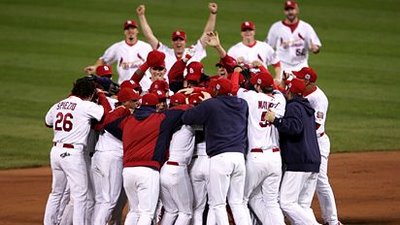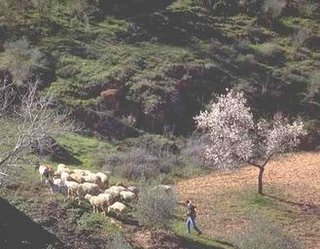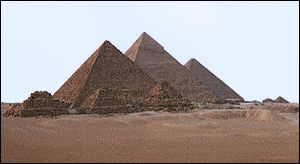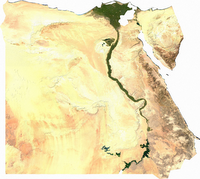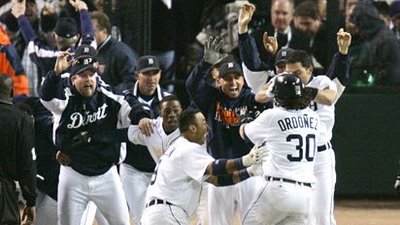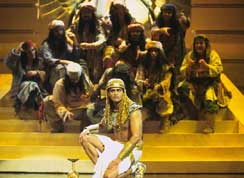This fall at Trinity Evangelical Divinity School I am taking a course called Anthropology for Missions, in it we learn how to study culture. One of our assignments is to read anthropological journals and find articles with insights for ministry. The article below is a revised version of one I found in American Anthropologist, Vol. 104, No 3 September 2002. It concerns Ameria's view of Muslims and gives some (not all) of the reasons for why "terrorists" exist and why "they hate us."
The article at first was a bit hard to read, but once into it I found myself disgusted, enlightened, and perplexed. America is not what you think. Global Islam is not what you think. Global Christianity is not what you think. Everything is more complex than one realizes, which is why people resort to overgeneralizations as a means to make some kind of sense of the world.
I hate what terrorists (who are Muslim) did to American on 9/11.
I hate what intelligence operatives (who are Chrisitans) did to Afghanistan in the Cold War.
You reap what you sow.
Blessed are the peacemakers.
Blessed are you when people persecute you for doing what is right.
I'd be suprised if anybody reads this whole article, it is lengthy...but if you want a fresh historical perspective on how Terrorism and America met on 9/11, do read this article.
*****************************
SOCIAL SCIENCE RESEARCH COUNCIL / AFTER SEPT. 11
Good Muslim, Bad Muslim – An African Perspective
Mahmood Mamdani, Herbert Lehman Professor of Government and Anthropology, Columbia University
Ever since September 11, there has been a growing media interest in Islam. What is the link, many seem to ask, between Islam and terrorism?The Spectator, a British weekly, carried a lead article a few weeks ago that argued that the link was not with all of Islam, but with a very literal interpretation of it. This version, Wahhabi Islam, it warned, was dominant in Saudi Arabia, from where it had been exported both to Afghanistan and the US. This argument was echoed widely in many circles, more recently in the New York Times. This article is born of dissatisfaction with the new wisdom that we must tell apart the Good Muslim from the Bad Muslim.
Culture Talk
Is our world really divided into two, so that one part makes culture and the other is a prisoner of culture? Are there really two meanings of culture? Does culture stand for creativity, for what being human is all about, in one part of the world? But in the other part of the world, it stands for habit, for some kind of instinctive activity, whose rules are inscribed in early founding texts, usually religious, and museumized in early artifacts?
When I read of Islam in the papers these days, I often feel I am reading of museumized peoples. I feel I am reading of people who are said not to make culture, except at the beginning of creation, as some extraordinary, prophetic, act. After that, it seems they just conform to culture. Their culture seems to have no history, no politics, and no debates. It seems just to have petrified into a lifeless custom.
Even more, these people seem incapable of transforming their culture, the way they seem incapable of growing their own food. The implication is that their only salvation lies, as always, in philanthropy, in being saved from the outside.
When I read this, or something like this, I wonder if this world of ours is after all divided into two: on the one hand, savages who must be saved before they destroy us all and, on the other, the civilized whose burden it is to save all?
We are now told to give serious attention to culture. It is said that culture is now a matter of life and death.
But is it really true that people’s public behavior, specifically their political behavior, can be read from their religion? Could it be that a person who takes his or her religion literally is a potential terrorist? And only someone who thinks of the text as not literal, but as metaphorical or figurative, is better suited to civic life and the tolerance it calls for?
How, one may ask, does the literal reading of religious texts translate into hijacking, murder, and terrorism?
Some may object that I am presenting a caricature of what we read in the press. After all, is there not less and less talk of the clash of civilizations, and more and more talk of the clash inside civilizations? Is that not the point of the articles I referred to earlier, those in The Spectator and The New York Times? After all, we are now told to distinguish between good Muslims and bad Muslims. Mind you, not between good and bad persons, nor between criminals and civic citizens, who both happen to be Muslims, but between good Muslims and bad Muslims.
We are told that there is a fault line running through Islam, a line that divides moderate Islam, called genuine Islam, and extremist political Islam. The terrorists of September 11, we are told, did not just hijack planes; it is said that they also hijacked Islam, meaning genuine Islam!
Here is one version of the argument that the clash is inside – and not between – civilizations. It is my own construction, but it is not a fabrication. I think of it as an enlightened version, because it does not just speak of the other, but also of self. It has little trace of ethnocentrism. This is how it goes.
Islam and Christianity have one thing in common. Both share a deeply messianic orientation. Each has a conviction that it possesses the truth. Both have a sense of mission to civilize the world. Both consider the world beyond a sea of ignorance, one that needs to be redeemed. Think, for example, of the Arabic word al-Jahaliya, which I have always known to mean the domain of ignorance.
This conviction is so deep-seated that it is even found in its secular version, as in the old colonial notion of “a civilizing mission,” or in its more racialized version, “the White Man’s Burden.” Or simply, in the 19th century American conviction of a “manifest destiny.”
In both cultures, Christian and Muslim, these notions have been the subject of prolonged debates. Even if you should claim to know what is good for humanity, how do you proceed? By persuasion or force? Do you convince others of the validity of your truth or do you proceed by imposing it on them? The first alternative gives you reason and evangelism; the second gives you the Crusades.
Take the example of Islam, and the notion of Jihad, which roughly translated means struggle. A student of mine gave me a series of articles written by the Pakistani academic and journalist, Eqbal Ahmed, in the Karachi-based newspaper, Dawn. In one of these articles, Eqbal distinguished between two broad traditions in the understanding of Jihad. The first, called “little Jihad,” thinks of Jihad as a struggle against external enemies of Islam. It is an Islamic version of the Christian notion of “just war”. The second, called “big Jihad,” thinks of Jihad as more of a spiritual struggle against the self in a contaminated world.
All of this is true, but I don’t think it explains terrorism. I remain deeply skeptical that we can read people’s political behavior from their religion, or from their culture. Remember, it was not so long ago that some claimed that the behavior of others could be read from their genes. Could it be true that an orthodox Muslim is a potential terrorist? Or, the same thing, that an Orthodox Jew is a potential terrorist and only a Reform Jew is capable of being tolerant of those who do not share his convictions?
I am aware that this does not exhaust the question of culture and politics. How do you make sense of politics that consciously wears the mantle of religion? Take, for example the politics of Osama bin Laden and al-Qaida, both of whom claim to be waging a Jihad, a just war against the enemies of Islam? How do we make sense of this?
I want to suggest that we turn the cultural theory of politics on its head. Rather than see this politics as the outcome of an archaic culture, I suggest we see neither the culture not the politics as archaic, but both as very contemporary outcomes of equally contemporary conditions, relations and conflicts. Instead of dismissing history and politics as does culture talk, I suggest we place cultural debates in historical and political contexts. Terrorism is not a cultural residue in modern politics. Rather, terrorism is a modern construction. Even when it tries to harness one or another aspect of tradition and culture, it puts this at the service of a modern project.
In what follows, I would like to offer you a perspective on contemporary terrorism from an African vantage point.
An African Perspective on Contemporary Terrorism
Eqbal Ahmed writes of a television image from 1985, of Ronald Reagan meeting a group of turbaned men, all Afghani, all leaders of the Mujaheddin. After the meeting, Reagan brought them out into the White House lawn, and introduced them to the media in these words: “These gentlemen are the moral equivalents of America’s founding fathers.”
This was the moment when official America tried to harness one version of Islam in a struggle against the Soviet Union. Before exploring the politics of it, let me clarify the historical moment.
1975 was the year of American defeat in Indochina. 1975 was also the year the Portuguese empire collapsed in Africa. It was the year the center of gravity of the Cold War shifted from Southeast Asia to Southern Africa. The question was: who would pick up the pieces of the Portuguese empire, the US or the Soviet Union?
As the center of gravity of the Cold War shifted, from Southeast Asia to Southern Africa, there was also a shift in US strategy. The Nixon Doctrine had been forged towards the closing years of the Vietnam War but could not be implemented at that late stage – the doctrine that “Asian boys must fight Asian wars” – was really put into practice in Southern Africa. In practice, it translated into a US decision to harness, or even to cultivate, terrorism in the struggle against regimes it considered pro-Soviet. In Southern Africa, the immediate result was a partnership between the US and apartheid South Africa, accused by the UN of perpetrating “a crime against humanity.” Reagan termed this new partnership “constructive engagement.”
South Africa became both conduit and partner of the US in the hot war against those governments in the region considered pro-Soviet. This partnership bolstered a number of terrorist movements: Renamo in Mozambique, and Unita in Angola. Their terrorism was of a type Africa had never seen before. It was not simply that they were willing to tolerate a higher level of civilian casualties in military confrontations – what official America nowadays calls collateral damage. The new thing was that these terrorist movements specifically targeted civilians. It sought specifically to kill and maim civilians, but not all of them. Always, the idea was to leave a few to go and tell the story, to spread fear. The object of spreading fear was to paralyze government.
In another decade, the center of gravity of the Cold War shifted to Central America, to Nicaragua and El Salvador. And so did the center of gravity of US-sponsored terrorism. The Contras were not only tolerated and shielded by official America; they were actively nurtured and directly assisted, as in the mining of harbors.
The shifting center of gravity of the Cold War was the major context in which Afghanistan policy was framed. But it was not the only context. The minor context was the Iranian Revolution of 1979. Ayatullah Khomeini anointed official America as the “Great Satan,” and official Islam as “American Islam.” But instead of also addressing the issues – the sources of resentment against official America – the Reagan administration hoped to create a pro-American Islamic lobby.
The grand plan of the Reagan administration was two-pronged. First, it drooled at the prospect of uniting a billion Muslims around a holy war, a Crusade, against the evil empire. I use the word Crusade, not Jihad, because only the notion of Crusade can accurately convey the frame of mind in which this initiative was taken. Second, the Reagan administration hoped to turn a religious schism inside Islam, between minority Shia and majority Sunni, into a political schism. Thereby, it hoped to contain the influence of the Iranian Revolution as a minority Shia affair.
This is the context in which an American/Saudi/Pakistani alliance was forged, and religious madresas turned into political schools for training cadres. The Islamic world had not seen an armed Jihad for centuries. But now the CIA was determined to create one. It was determined to put a version of tradition at the service of politics. We are told that the CIA looked for a Saudi Prince to lead this Crusade. It could not find a Prince. But it settled for the next best, the son of an illustrious family closely connected to the royal family. This was not a backwater family steeped in pre-modernity, but a cosmopolitan family. The Bin Laden family is a patron of scholarship. It endows programs at universities like Harvard and Yale.
The CIA created the Mujaheddin and Bin Laden as alternatives to secular nationalism. Just as, in another context, the Israeli intelligence created Hamas as an alternative to the secular PLO.
Contemporary “fundamentalism” is a modern project, not a traditional leftover. When the Soviet Union was defeated in Afghanistan, this terror was unleashed on Afghanistan in the name of liberation. As different factions fought over the liberated country – the Northern Alliance against the Taliban – they shelled and destroyed their own cities with artillery.
The Question of Responsibility
To understand the question of who bears responsibility for the present situation, it will help to contrast two situations, that after the Second World War and that after the Cold War, and compare how the question of responsibility was understood and addressed in two different contexts.
In spite of Pearl Harbor, World War Two was fought in Europe and Asia, not in the US. It was not the US which faced physical and civic destruction at the end of the war. The question of responsibility for postwar reconstruction did not just arise as a moral question; it arose as a political question. In Europe, its urgency was underlined by the changing political situation in Yugoslavia, Albania, and particularly, Greece. This is the context in which the US accepted responsibility for restoring conditions for decent life in noncommunist Europe. That initiative was called the Marshall Plan.
The Cold War was not fought in Europe, but in Southeast Asia, in Southern Africa, and in Central America. Should we, ordinary humanity, hold official America responsible for its actions during the Cold War? Should official America be held responsible for napalm bombing and spraying Agent Orange in Vietnam? Should it be held responsible for cultivating terrorist movements in Southern Africa and Central America?
Perhaps no other society paid a higher price for the defeat of the Soviet Union than did Afghanistan. Out of a population of roughly 15 million, a million died, another million and a half were maimed, and another five million became refugees. Afghanistan was a brutalized society even before the present war began.
After the Cold War and right up to September 10 of this year, the US and Britain compelled African countries to reconcile with terrorist movements. The demand was that governments must share power with terrorist organizations in the name of reconciliation – as in Mozambique, in Sierra Leone, and in Angola.
If terrorism was an official American Cold War brew, it was turned into a local Sierra Leonean or Angolan or Mozambican or Afghani brew after the Cold War. Whose responsibility is it? Like Afghanistan, are these countries hosting terrorism, or are they also hostage to terrorism? I think both.
Official America has a habit of not taking responsibility for its own actions. Instead, it habitually looks for a high moral pretext for inaction. I was in Durban at the World Congress Against Racism (WCAR) when the US walked out of it. The Durban conference was about major crimes of the past, about racism, and xenophobia, and related crimes. I returned from Durban to listen to Condoleeza Rice talk about the need to forget slavery because, she said, the pursuit of civilized life requires that we forget the past.
It is true that, unless we learn to forget, life will turn into revenge-seeking. Each of us will have nothing but a catalogue of wrongs done to a long line of ancestors. But civilization cannot be built on just forgetting. We must not only learn to forget, we must also not forget to learn. We must also memorialize, particularly monumental crimes. America was built on two monumental crimes: the genocide of the Native American and the enslavement of the African American. The tendency of official America is to memorialize other peoples’ crimes and to forget its own – to seek a high moral ground as a pretext to ignore real issues.
Conclusion
I would like to conclude with the question of responsibility. It is a human tendency to look for others in times of adversity. We seek friends and allies in times of danger. But in times of prosperity, the short-sighted tend to walk away from others. This is why prosperity, and not adversity, is the real litmus test of how we define community. The contemporary history of Southern Africa, Central America, and Afghanistan testifies to this tendency.
Modernity in politics is about moving from exclusion to inclusion, from repression to incorporation. By including those previously excluded, we give those previously alienated a stake in things. By doing so, we broaden the bounds of lived community, and of lived humanity. That perhaps is the real challenge today. It is the recognition that the good life cannot be lived in isolation.
I think of civilization as a constant creation whereby we gradually expand the boundaries of community, the boundaries of those with whom we share the world – this is why it is so grotesque to see bombs and food parcels raining on the defenseless people of Afghanistan from the same source.
Social Science Research Council | 810 Seventh Avenue | New York, NY 10019 USA | 212-377-2700/2727 fax





